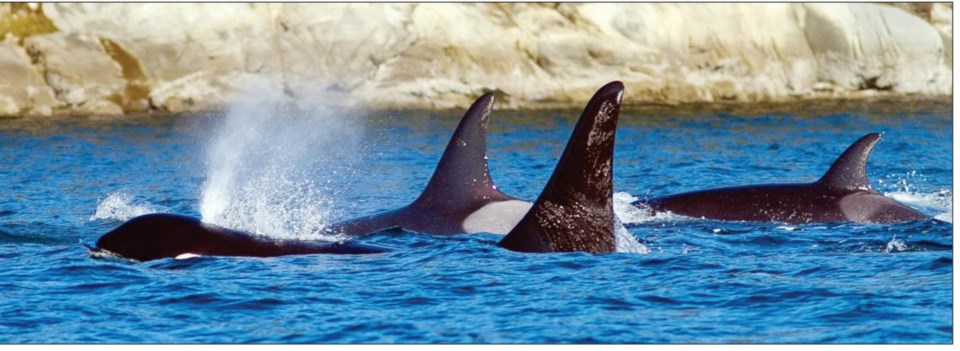Two of B.C.’s major environmental organizations are launching a Save-the-Salish-Sea campaign because of looming threats to the delicate ecosystem.
The groups are concerned about possible expanded coal and oil exports, which would increase the number of tankers and coal ships travelling from Vancouver, through the Gulf Islands and Juan de Fuca Strait, as well as existing problems, such as pollution and overuse.
Georgia Strait Alliance and the Wilderness Committee are asking B.C. residents to demonstrate support for the water that surrounds them by pledging to become “caring kayakers, bright birders and savvy shoreline users.”
“There are endless ways to show our love of the ocean and protect it for future generations,” the Georgia Strait Alliance said in a statement.
The campaign is also pushing the provincial government to reclaim the power to control approval of projects such as expansion of the Kinder Morgan pipeline, said GSA executive director Christianne Wilhelmson.
“For things like tripling the capacity of the Kinder Morgan pipeline, the power is in Ottawa’s hands. We want it to be local,” Wilhelmson said.
In 2010, the B.C. Liberal government signed an agreement with Ottawa that a federal environmental review of such projects would be the equivalent of a provincial assessment.
“We want B.C. to show leadership on this issue,” Wilhelmson said. “If a tanker has an accident in the strait, it would be devastating.”
The possible tripling of Kinder Morgan’s Trans-Mountain pipeline, combined with plans to increase exports of U.S. coal through the Fraser-Surrey docks, puts Vancouver on its way to becoming a global climate change export hub and threatens the Salish Sea, Wilhelmson said.
“This is crisis time and we have a global responsibility,” she said.
Meanwhile, a joint Canada-U.S. study on the health of the Salish Sea shows both improvements and declines.
While the quality of fresh water running into the ocean, air quality and amount of persistent toxic chemicals in the aquatic food chain are improving, the abundance of chinook salmon (the main diet for threatened southern resident killer whales), survival of marine species at risk and marine water quality are declining.
Summer stream flow and marine water quality, indicators sensitive to climate change, show declining trends, the study said.
The report, which looks at key indicators in air, water, animal species and human well-being around the Salish Sea, was compiled by Environment Canada and the U.S. Environmental Protection Agency.
“We can use this information to guide how we use resources and commit attention to areas that need improvement,” said Dennis McLerran, EPA regional administrator.



